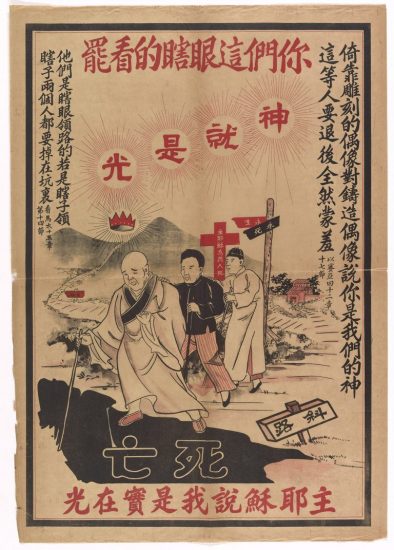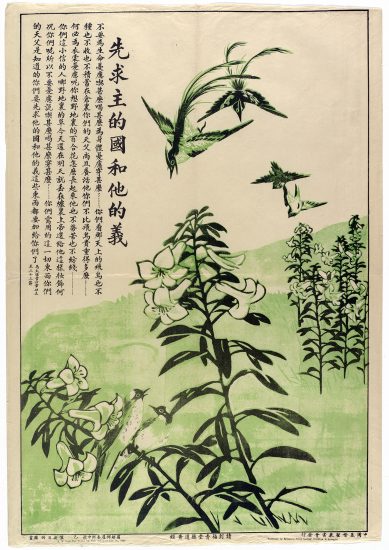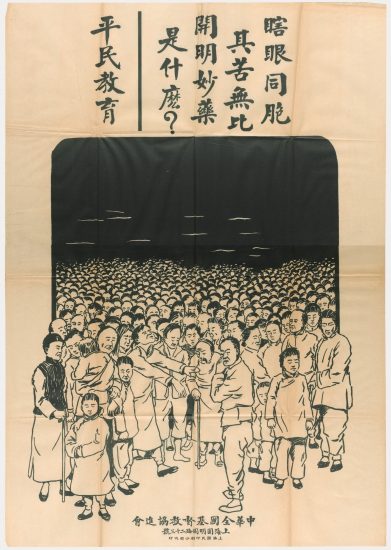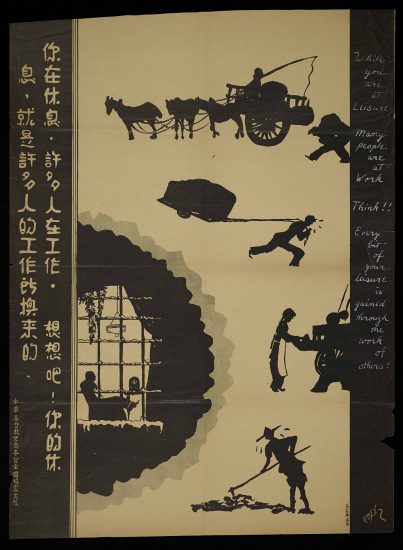
The first poster to examine is titled “Look, You Blind”. The writing on the top of the poster is Isaiah 42:18 and reads “Look, you blind, and see!” The writing on the left of the poster is Matthew 15:14 and reads “They are blind guides. If the blind lead the blind, both will fall into a pit.” The writing in the middle simply reads “God is light” and has no biblical reference. The writing on this is Isaiah 42:17 and reads “But those who trust in idols, who say to images, ‘You are our gods,’ will be turned back in utter shame.” The bottom reads “The Lord Jesus said I am the true light” and like the quote from the top of the poster has no biblical citation. The signs within the poster are also covered in biblical sayings. The red sign reads “eternal life”. The black sign reads “eternal death”. The white sign reads “wrong track”. The red sign further away reads “path to heaven.” The writing on the cross reads “the Lord Jesus died for sinners.” Finally the writing on the cliff reads “death.” It would appear that the message of the poster is that those who follow religions other than christianity are blind and are leading others who are also blind to eternal death, while Christianity provides the only route to salvation. While the surface meaning is somewhat obvious in the context of the early twentieth century which saw China racked by internal conflicts, natural disasters, and wars with foreign powers, this poster could also demonstrate a need to change and adapt to western ideas in order to avoid death. Christianity, being a western religion, could represent the west leading the Chinese people to salvation from internal conflicts and catastrophe.

The second poster is titled “A New Objective.” The writing on the right side of the poster is Matthew 6:25-33. The theme of the verse is do not worry, because God will sustain you. Unlike the previous poster which has no official publishing date this poster was published in 1929. 1929 was a very difficult year for Chinese Christians and non Chinese Christians alike. The era of warlordism had just ended. Japan had recently taken a large chunk of Northern China. Finally there was also lots of social change as the New Culture movement had been influencing social change for years to include a wave of anti christian sentiment. However there is a message for all Chinese people regardless of religious affiliation. That message is seen when you replace the concept of God with the concept of unity. When this is done the message conveys the idea that a united China would be able to provide for its citizens the intent here being to guide China towards unification. Unification being a reform in the face of the very recent threat of dissolution by means of warlordism and conquest by foreigners.

This poster is titled “Commoner’s education.” The writing on top reads “Blind fellow citizens suffer. What is the enlightening medicine? Commoners’ education.” The previously mentioned text is formatted as a call and answer. This poster features a great mass of people who all appear to be blind, and are stumbling into each other. Comparing uneducated people to the blind. This poster may not contain any overtly Christian content, however it was published by the National Christian Council of China some time around the 1930s. Unlike previous posters who’s message must be modified to fit current circumstances this poster calls explicitly for social change, that change being education reform. This poster shows concrete evidence that Chinese Christain’s were involved in positive social change. This poster stands in stark contrast to the claims made by the anti Christian campaigns and the series of lectures titled “ The problem of religion.”

This poster is titled “While You are at Leisure.” The writing reads “While you are at leisure, lots of people are working! Think about it! Your leisure time is gained through the work of others.” Much like the last poster, this one does not explicitly contain Christian content, but was published with Christian intentions as it was published by National Council of Young Women’s Christian Association of China. This poster initially seems to encourage hard work in a generic poster fashion, until you get to the second part of the text. This piece of the text almost seems to be a pro communist critique of the richer class. However upon examining the collectivist nature of Chinese Christianity it can be seen as more of a call for a more unified and equal society where people aren’t taken advantage of. One of few beliefs that communists and Christians appear to share.
